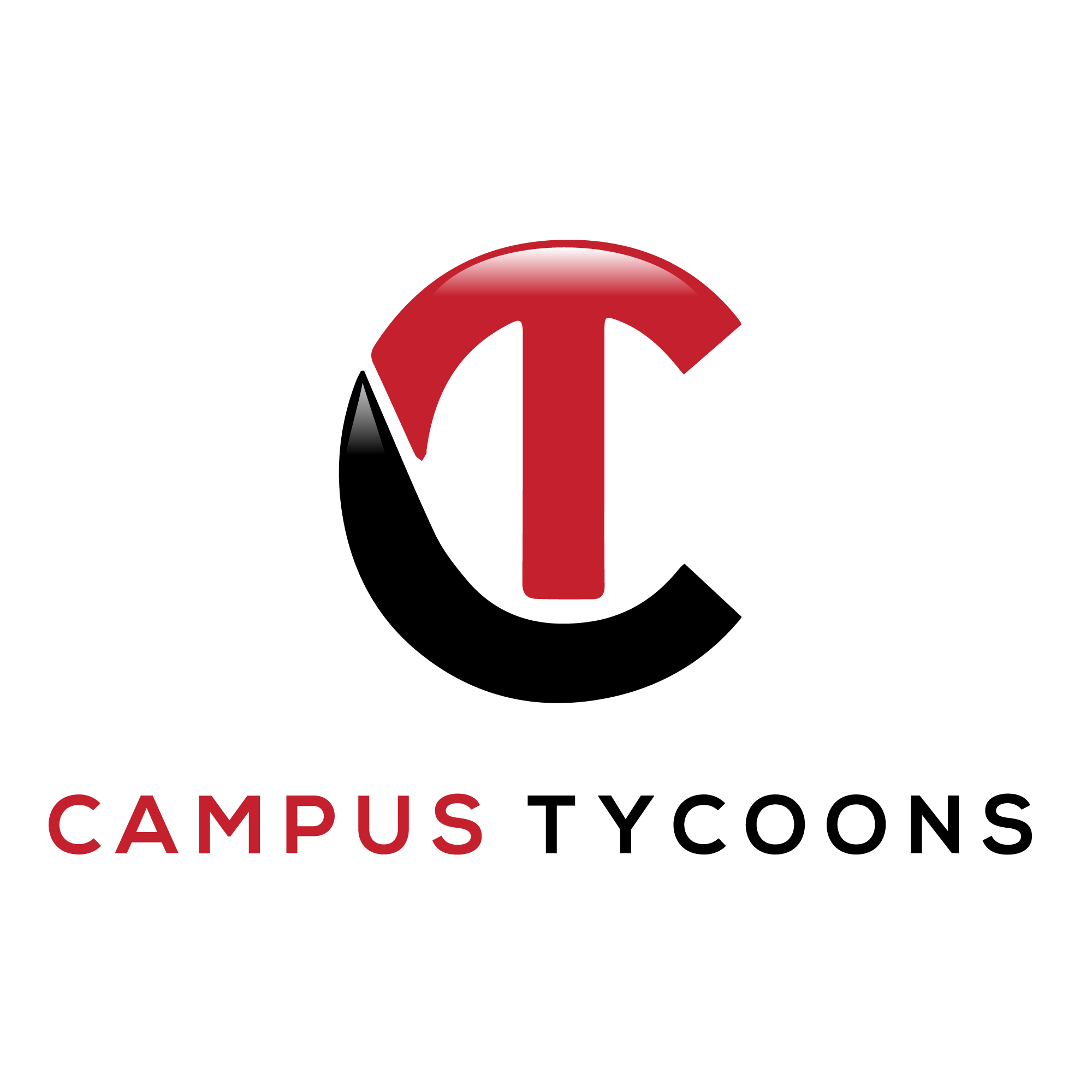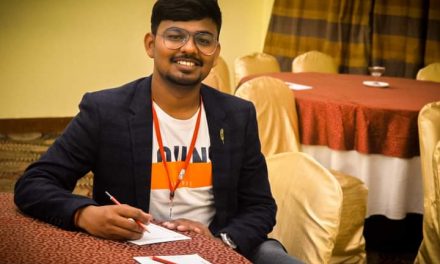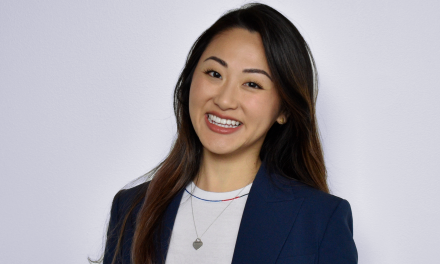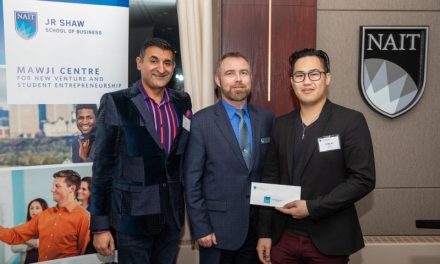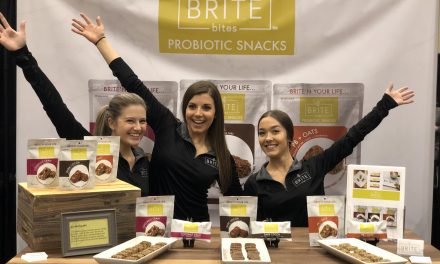“My teaching experiences inspired me to develop an edutainment YouTube channel called Phuture Doctors: a behind-the-scene look at the cutting-edge research that takes place at research universities, and at the talented and diverse graduate students carrying out that work.”
says Stephanie Castillo, a Graduate Research Assistant in Science Communication in Chemistry at Vanderbilt University
PhutureDoctors aims to expose high school and undergraduate students to STEM research, communicate the importance of research by demonstrating how scientists use the tools in lab to tackle problems, and to describe complex topics using fun & simple animations.Interviews with graduate students will reveal what life is like as a scientist, as well as our experiences with representation, mental health, and mentorship in higher education. By creating edutainment content that is transparent and that highlights diversity, it aims to inspire underrepresented minorities to pursue an education in STEM.This channel could be used as a resource for students who have limited or no opportunities to tour a research university, or who lack support and mentorship at their schools.
Read on to get an insight into Stephanie’s journey…
Phuture Doctors
Please tell us a little bit about your background.
Hi there! My name is Stephanie, and I am a graduate student at Vanderbilt University in pursuit of my Ph.D. in Science Communication. I am interested in how to produce science-based videos specifically for underrepresented undergraduate students in STEM. I am a first-generation college and graduate student, having earned a BS and MS degree in chemistry from the University of Central Florida and Vanderbilt University, respectively. Since high school, I have always been passionate about teaching and exploring my hobbies, such as photography. I am really excited that I was able to combine my passions with my expertise in science to make science films!
What inspired you to start Phuture Doctors?
I consume a lot of media, especially YouTube videos! As a STEM student, I relied on YouTube a lot to learn concepts that weren’t quite as clear to me in class. I also sought out science videos for entertainment and enjoyment because I love learning new things and understanding the world at a deeper level. I realized that there was a lack of representation in this space, which was further validated by a research study that looked at the gender breakdown of host for popular science channels. Of the 391 science channels they found, only 32 were hosted by women. When looking further into this discrepancy, there is little racial and ethnic representation too in this space. I wanted to create a channel that would highlight the diversity of STEM scientists so students of color would have access to what a scientist really looks like. Birthing my brainchild, Phuture Doctors!
What was the source of your initial funding for Phuture Doctors?
As a graduate student in STEM, my career options after earning a Ph.D. are either academia or industry. Starting Phuture Doctors, I was curious if it was possible to make a career out of my YouTube, as many other early science communicators have. However, I did not know where to even start. Vanderbilt University has a great entrepreneurship community, so I decided to apply for their PreLaunch program to learn more about starting a business. At the end of the program, we had the opportunity to pitch our business idea, mine being Phuture Doctors, for the chance to win a microgrant. My pitch was one of the winners and won $2,900 towards my business and customer discovery efforts. Since then, I have remained heavily involved in Vanderbilt’s entrepreneurship community and have participated in student pitch competitions for seed funding.
What is your mission, and do you see yourself continuing with this effort even after graduating?
There will be a shortage of people to fill STEM jobs in the next 10 years. My mission has evolved from being a YouTube channel that shows the diversity of people in STEM, to having Phuture Doctors serve as a career resource for underrepresented students in STEM. My mission is to guide students through STEM by providing role models, career exploration tools, and opportunities to land their dream job through my science videos and platform. I wanted underrepresented students in STEM to know that they do, in fact, belong and that they are needed to continue to move our society forward. There are careers in STEM out there, and we need more fields to be inclusive of solving tomorrow’s problems.
I am trying really hard to continue my efforts with Phuture Doctors after graduating. I literally left the Chemistry Ph.D. program to do a Science Communication Ph.D. so that I can focus on Phuture Doctors full time. I am taking advantage of opportunities specifically for students to become a full-time entrepreneur. Doing so allows me to raise money, refine my business plan, and build up my brand and clientele so that I can
Who all have been influential in this journey? You may include family, friends, mentors, books etc?
Being a child of immigrants, I have seen my parents hustle their way to the top. My parents went from owning their own business in Venezuela to having to clean hotel rooms in the US. After many years of hard work, my dad eventually owned his own construction company, and my mother was a successful realtor in the states. My parents taught me to never settle for less and to tackle the world with a growth mindset. They have been the biggest supporter of my dreams since day one and my constant source of inspiration.
In regards to my actual business, my mentors at The Wond’ry (one of Vanderbilt’s entrepreneurship centers) have actually been extremely influential in my entrepreneurial journey. Deanna Meador, Stryker Warren, and Amr El-Husseini have put in so much time to train, guide, and support me in refining my business model and pitch. I owe my success to them!
What are some of the challenges you see in being a student entrepreneur?
The biggest challenge I face being a student entrepreneur is balancing the demand and responsibility of being a Ph.D. student with the time it takes to build a business. There are moments where I am excited about my business and dedicate my time to developing that at the expense of my research progress. Then when I put a lot of time into my Ph.D. work, my business is left at a standstill. I haven’t quite figured out the best balance, but I am doing my best designating time for each of my passions.
How much time do you and your team spend working on your company?
At the moment, I am a solopreneur. Technically I am working on my business full-time as my Ph.D. research is serving as my soon to be MVP. But in terms of developing my business model, networking, marketing, etc., I am dedicating about 10 hours a week.
Do you see academics getting affected?
My academics have been affected before. I entered Vanderbilt University as a Chemistry Ph.D. student. It was in the second year of my program when I decided to start Phuture Doctors as a creative outlet. The more I learned about entrepreneurship and science communication, and the possibility of making my side hustle into a full-time career, the more I disengaged with my Ph.D. work. This led to me failing-out of the chemistry Ph.D. program. The real reason I turned towards Phuture Doctors instead of my PhD work was that I was not happy in my chemistry program. I’d rather work on something that was bringing my joy than be miserable. Hindsight, failing out was a blessing in disguise as I was able to create my own path and now get to both earn my Ph.D. and develop Phuture Doctors.
What is the one thing that keeps you going?
The validation I have received in terms of feedback on the importance of having something like Phuture Doctors is what keeps me going. There is nothing quite like it out there, and there is a clear gap that needs to be filled. As a first-generation student and minority in STEM, I have experienced first-hand the importance of having role models and representation in this space. I want students to know that their experiences are unique but not impossible, and we can help them achieve their goals no matter what life throws at them.
What are some things you wish you knew a year (or two) ago?
I don’t think I truly understood that becoming an entrepreneur takes a lot of work. There are so many nuances to learn that it can feel hard to know where to look first. It took me a while to become an advocate for myself. If I ever felt lost or confused, then not to wait until things turned terrible to seek help. The moment I feel lost of confused to seek help right away. That is the first step to building a robust support system and network around myself so that I know who I can trust or turn to when I need it.
What are some of the tools or resources that have helped you?
Participating in pitch competitions has actually been the best resource for me. Not only is this an opportunity to work on my public speaking skills, but it’s also an opportunity to see the holes in your business model and address them. It is a way to get feedback during the preparation of the pitch, seek help in answering gaps in your business, and build up your confidence in your business idea. If I don’t win a competition, it serves as a source of feedback in understanding what worked or what didn’t. If I win, it’s validation and motivation to keep going. Most importantly, pitch competitions are a vast source for networking, finding new mentors, and new opportunities. Definitely take advantage of student pitch competitions!
How do you prioritize your activities in a day/ week?
As I mentioned earlier, I have a hard time balancing between Ph.D. work and developing my business. Because I love working on Phuture Doctors and it is a source of joy, I do save it for near the end of the day to work on it. Working on my PhD requires a lot of mental energy. Plus, I am being paid to do research as a Ph.D. student, so I do prioritize my study and work on this first thing in the morning.
Final Words…
Phuture Doctors has passed its proof of concept stage and in the works of entering a new phase—becoming a production company. I primarily want to be a source of content and create science videos that focus on navigating STEM as an underrepresented minority while showing the diversity of scientists and STEM careers. I am in the works of launching my next season of videos, and I’d hope you tune by subscribing to my YouTube channel. If you are also interested in my research or want to connect to other people of color in STEM, follow me on Instagram. I am incredibly active as I document my Ph.D. and entrepreneurial journey. If you are interested in being featured yourself, then reach out to me and let’s talk!
Campus Tycoons wishes Stephanie success in her endeavors. We are proud of you!
